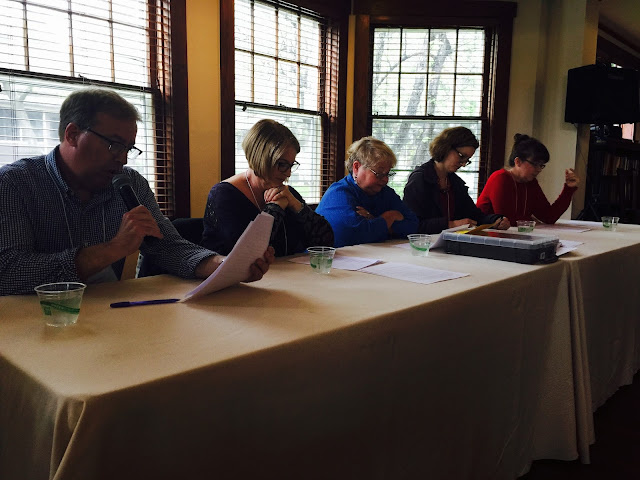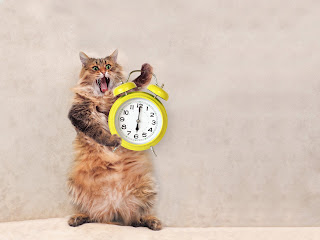 |
DREAM TEAM: Nick Healy, Caryn Wiseman, Andrea Brown, Jennifer Mattson, Melissa Manlove
|
Writers want to know
the secret sauce that makes editors, agents and readers turn a first page in a
book. Some say authors must get the inciting incident on page one.
Screenwriting books advise the inciting incident should land on page ten (or
for books, the first 10% of a novel). Wendy Loggia of Delacorte Press/Random
House once told me it’s hard to care about an inciting incident until we care
about the character. She went on to say that many writers want to get to the
good stuff first, but it all has to be good.
To further understand
the art of the first page, I asked Andrea Brown, president of the
Andrea Brown
Literary Agency (ABLA), to host a panel session during the Big Sur in the
Rockies writing workshop held in Boulder, Colorado. On a rainy Saturday afternoon,
participants submitted the first page of their work-in-progress and gathered to
hear feedback from a dream-team of publishing professionals—Melissa Manlove
from Chronicle Books, Nick Healy from
Capstone Publishing, and three ABLA agents: Andrea Brown, Caryn Wiseman and
Jennifer Mattson. The panel provided
insight on what works and what doesn’t on the first page of manuscripts,
everything from picture books to YA novels.
Here’s what I heard:
1. Don’t
rob readers of experiencing the emotional state of the character.
This is another reason agents and editors (and readers) want you to SHOW DON’T
TELL. For example, writers should not write George
was upset about his report card—that TELLS the emotional state. Write
something along the lines of George
wadded up his report card and shoved it to the bottom of his backpack.
2. Picture
Book Writers—WATCH OUT for subjective-clause filled sentence
structure. Instead, choose an appropriate sentence structure for your audience. Let sentences end so readers land on an idea. Simplify your language and
let the art carry a good portion of the story's weight. (And on a sidenote, it’s a good idea to keep emotional conflict out of bedtime stories).
3. All
Manuscripts—
·
Avoid over choreography.
·
Read your pages out loud and listen for
repeating words or repeating a character’s name—fix if you’re over using it and it doesn't sound natural.
·
Choose active verbs. Instead of using
“to be” verbs, choose verbs powerful enough to eliminate adjective and adverbs.
·
Remember that books set in the 1980’s and 90's are now considered historical fiction.
·
Don’t lead with generic circumstances
that stay generic, stay away from common storylines and add something fresh and
original.
·
Don’t write a book with didactic intentions
and please don’t write with a didactic tone; kids will see right through this.
“We don’t go to stories for lessons,” says Melissa
Manlove (though please see Melissa’s
additional feedback listed at the end of this article).
·
Be careful so that you’re not long and
heavy on details. Readers don’t want to wade through the mundane to get to the
good.
·
“Many
editors dislike prologues and we want you to be as rejection-proof as possible
so don’t use them unless you really must.” Andrea Brown
·
Some panel members are not fans of
mixing anthropomorphized animals with talking humans. That’s not a rule, just a
note of preferences when querying this panel.
·
The Picture Book industry is currently
hot on having character-driven picture books, but characters still needs to
have a motivation.
·
4. Using
illustration notes in picture books. Please know this varies
between editors (for example, never (never ever) send an illustration note to Beach
Lane Books). Per the members on this panel, illustration notes are fine, but
only if it is necessary for the editor or agent to get an inside joke or a
something that is not relayed in the words. Do not use illustration notes to
describe your character or provide unnecessary art direction.
5. Writing
in Rhyme. If you are writing in rhyme, please take a look at
any book that’s won a Geisel Award (p.s. fun fact—Andrea Brown worked with
Theodore Geisel long ago!).
I’ve attended dozens upon dozens of conferences, and though many agents and editors say they don’t like rhyme, many
also say it’s because they don’t like bad and forced rhyme. Furthermore, if a
story rhymes in English, that doesn’t mean it’s going to rhyme in French or
Spanish, so rhyming books are difficult to sell beyond the U.S.
6. Author/Illustrators—if you work as both an author and illustrator, you should submit a sketch dummy for
your full picture book along with only a couple of pieces of finished art.

























